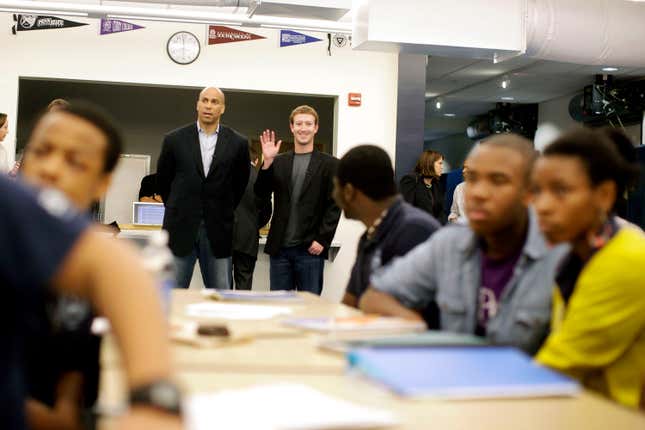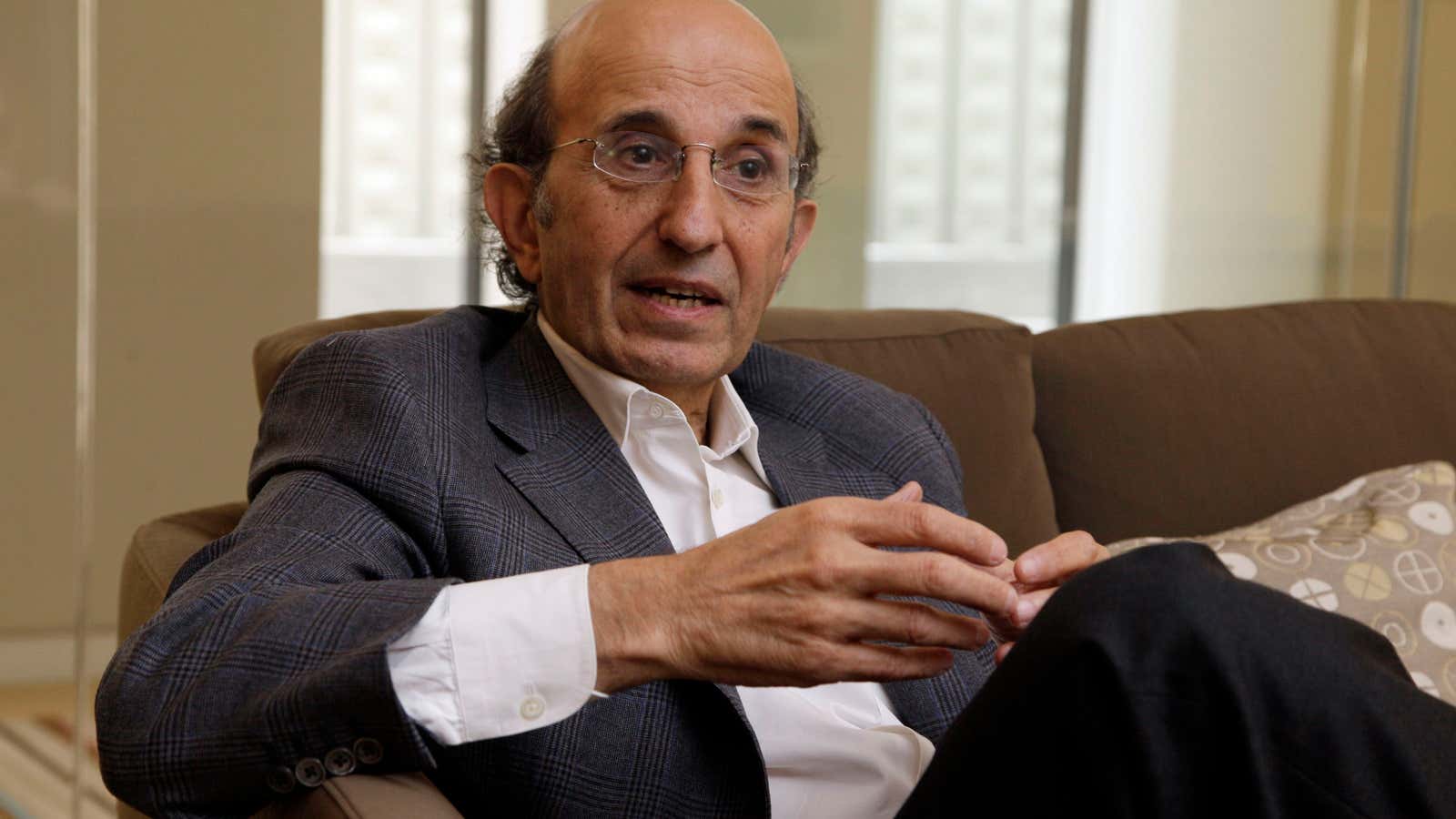Joel Klein served as chancellor of the New York City public school system for eight years, from 2002 until 2010. He was the first chancellor appointed under mayor Michael Bloomberg’s new system that put the mayor in charge of all the city’s schools, as opposed to splitting them up into many different districts of control. His tenure was a controversial one and included opening more than 100 charter schools and a number of small high schools, and giving more control to principals. He was an outsider, a lawyer previously with the Clinton administration, and had no education experience coming into the job of running America’s biggest school system. Now the CEO of education-technology company Amplify and an executive vice president of News Corp, Klein last week released a book about his time as chancellor, entitled Lessons of Hope. Quartz spoke with Klein last week. What follows is an excerpt of the conversation, edited for length and clarity.
Quartz: The topic of outsiders is something that you talk quite a bit about in your book, and you liked bringing them in. Why is that? And is there any disadvantage to outsiders becoming involved in education, especially Silicon Valley people like Mark Zuckerberg donating large amounts of money?
Klein: I didn’t see a disadvantage because I think you bring in outsiders, what you do is you get support for schools….These are people who are bringing real value add to the education equation. And I think that’s great. If education stays all sealed up and is only going to be run really by the bureaucrats inside the education system, I think that’s the worst of all outcomes.

Quartz: But do you think there’s a problem with people who don’t have any experience in education donating huge swaths of money to programs without necessarily understanding the full implications or the history behind them?
Klein: I don’t think that Carnegie necessarily understood everything about the public library, to say here’s how you design it and do it. When I was running the school system, we as a team would set forth what we thought our goals were, and say to the philanthropists, “This is what we’d like you to support.” It wasn’t their agenda, it was our agenda, and that’s the way I think it should work.
Quartz: If you had an unlimited budget—no restrictions, no politics do deal with—what would the ideal classroom look like for you?
Klein: The ideal classroom would start with a really great, world-class teacher who’s properly compensated, who is fully supported with the kind of technological supports that would make her the most effective. It would be one in which the learning experiences for the kids would be tailored to the individual needs of the children. There would be lots and lots of feedback for them. It would be a school that had a longer day and a longer year.…A classroom where there was a focus on constant improvement….Teachers would observe the teachers and give feedback and suggestions on how to get better. It would be a school, a classroom in which the individual students’ needs would be addressed so that the teacher knew which students were making a lot of progress, which students needed intervention and remediation, highly personalized based on data and information that the teacher had. And it would be a classroom in which the sort of constant improvement was driving culture of the classroom.
Quartz: Realistically, what do you think the classroom will look like in the next five to 10 years?
Klein: I hope it looks closer to the model I just described than the way we have it. I don’t think we’ll get fully there but I do think technology will help improve teaching and learning. I do think we’ll start to attract more and more higher-performing kids from our colleges into teaching. I think we’ll develop a more professional teaching force and I do think that the competition and the role of charter schools continue to play a positive influence on public education.
